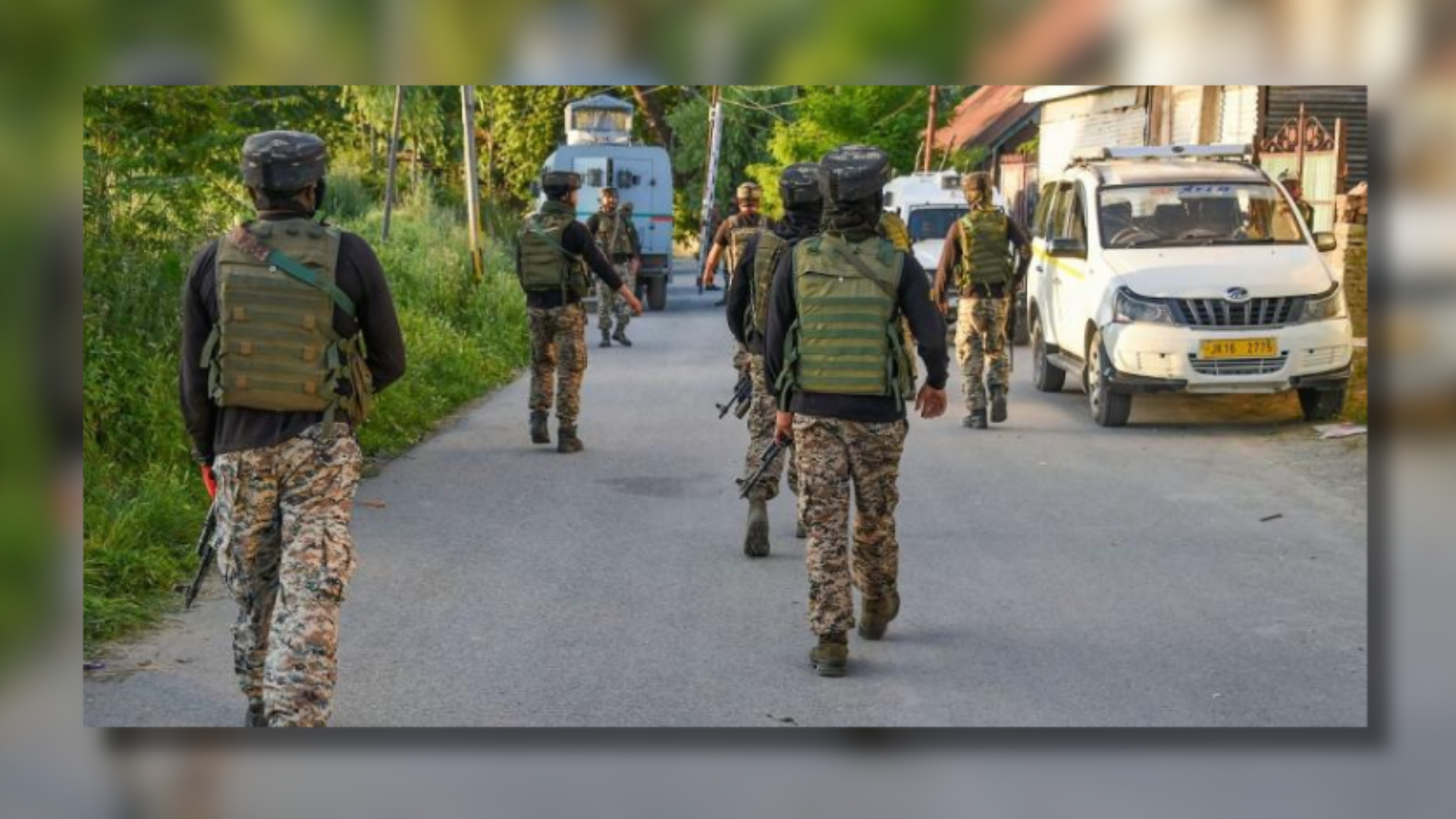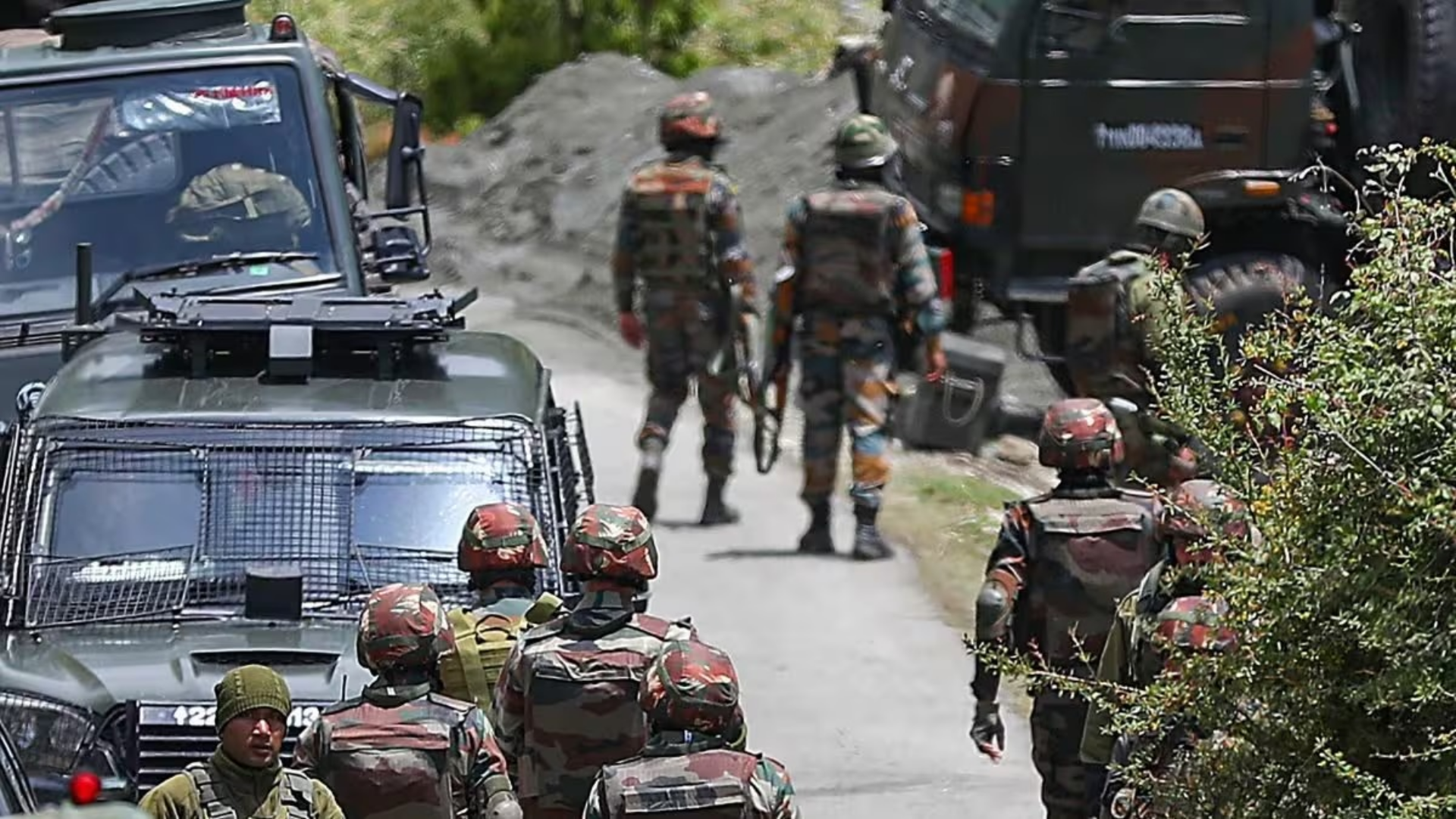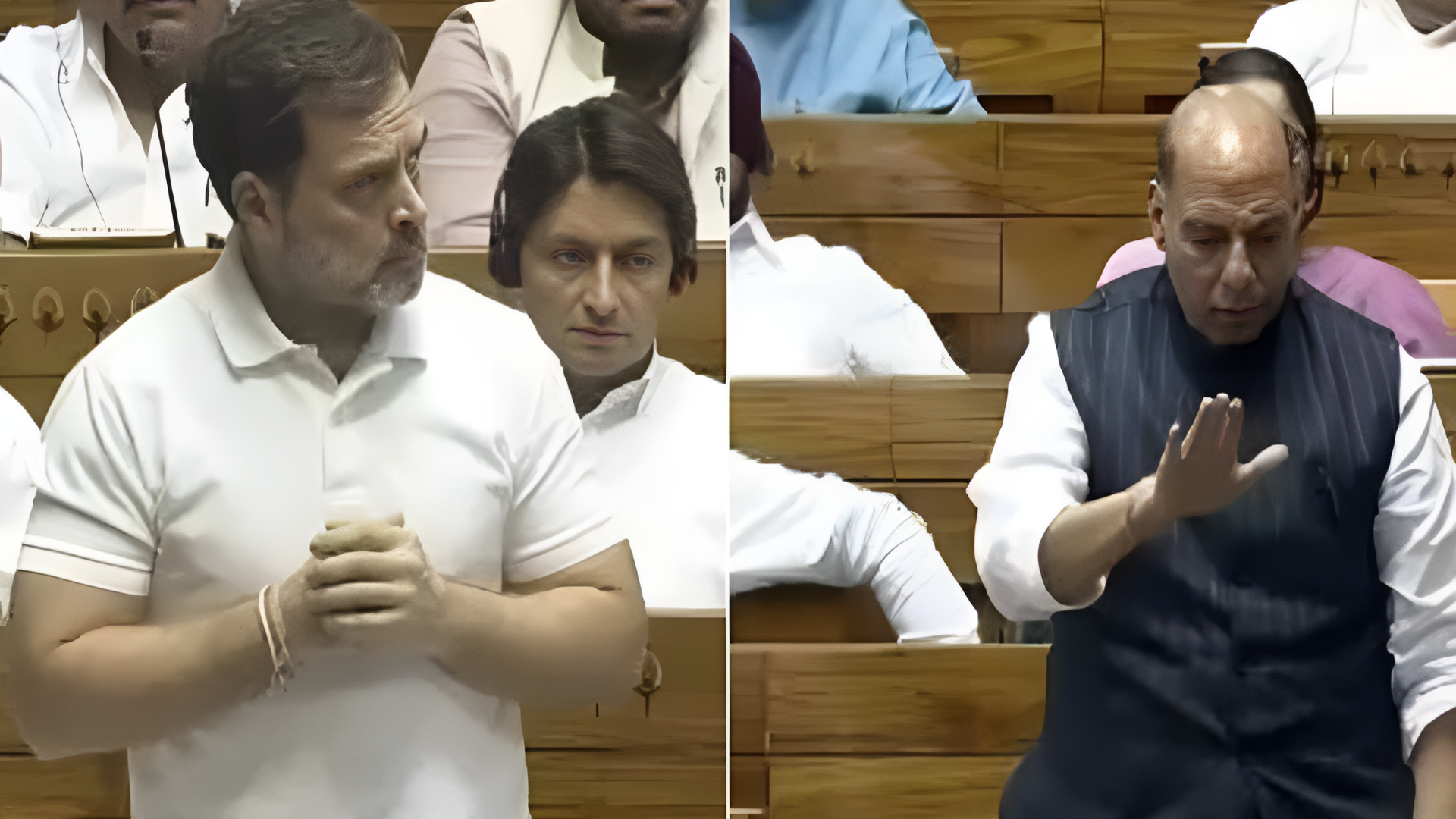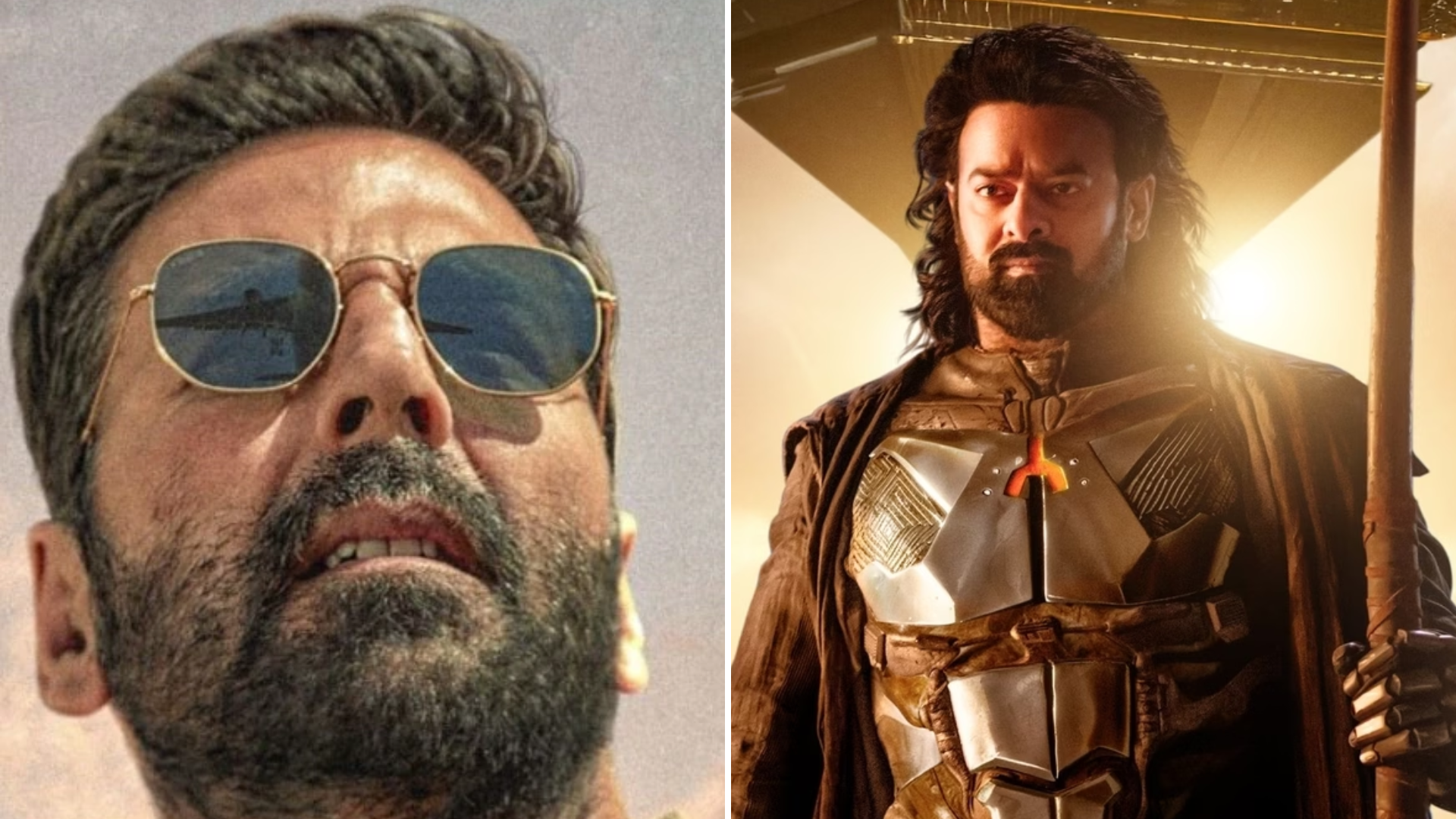









The parliament went through a heated debate session over the Agnipath scheme on Monday, when Rahul Gandhi, the Leader of the Opposition in Lok Sabha took a jibe at the scheme and had a spirited exchange with Defence Minister Rajnath Singh in the parliament over the same.
Rahul Gandhi had alleged that the individuals enrolled in the Defence services through the Agniveer scheme are not accorded the status of Martyrs and had also accused Defence Minister Rajnath Singh of lying about the compensation provided to the family of deceased Agniveers and had demanded an apology.
Rahul Gandhi on Monday while speaking in Lok Sabha, stated that the Agniveers are treated by the government as “use-and-throw labourers” and are not even granted the title of “shaheed” (martyr). Rajnath Singh responded by saying Rahul Gandhi shouldn’t deceive Parliament and that “Financial assistance of Rs one crore is given to the family of the Agniveer who sacrifices his life while protecting our borders or during war.”
This caused an uproar in Parliament, prompting the Indian Army to provide clarification. To gain a comprehensive understanding, NewsX gathered firsthand insights from Defence personnel. Exclusively joining NewsX, General Rakesh Sharma and Brigadier Rajendra Jambaol provided valuable insights into the scheme’s details and shed light on its politicization.
Amid the ongoing row on Agniveer between the ruling party BJP and the opposition Congress, General Rakesh Sharma while speaking to NewsX spoke about the status of Martyr given to the Agniveer and said, “The motive behind the launch of the Agniveer scheme was long-term; it aimed at giving a youthful profile to the Indian Army as well as modernising it. Agreed, there were some shortcomings in the scheme, and even the veteran community was not happy with many things, but I believe that politicising the matter is not in good taste as it brings down the morale of anyone who joins the scheme, as well as of the armed forces who are already there.”
He added further, “The point raised by Rahul Gandhi is completely wrong that an Agniveer will not get a martyr status, this is received and will continue to be received even in the present dispensation, secondly that they won’t receive compensation is incorrect; in fact, the compensation of 1.25 crore rupees that was promised will be given and has already been given. Therefore, spreading rumours for political mileage is very wrong.”
Further on the Issue of compensation that was to be provided to the families of the deceased who lost their lives while protecting the border Brigadier Rajendra Jambaol expressed himself and said “Dragging the armed forces into politics is a matter of great sorrow for the country. The Indian Army has had to come forward and clarify that the statements made in Parliament are false and incorrect. The soldiers who were martyred under the Agniveer scheme were given full military honours during their funerals and were compensated with approximately 1.65 crore rupees.”
He also drew an analytical comparison between the Agniveer scheme in India and defence organization in other countries and added, “Regarding Agniveer, until the 1960s, the service age in India was only 7 years, and after that, people were retired without a pension. In China, soldiers also serve on a 4-year contract without any compensation similar to ours. In other countries, they are not a conscripted army forcibly gathered; compared to this, Agniveer is a volunteer service. And before the roll-out of 1 or 2 batches, we cannot assess the impact of this scheme.”








